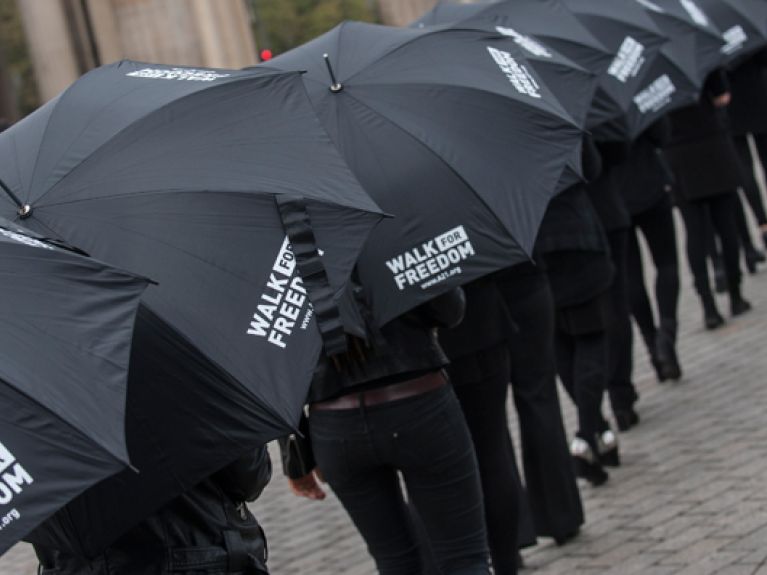The World Day Against Trafficking in Persons
In 2013 the United Nations declared a World Day Against Trafficking in Persons. A brief interview with Silke Albert from the United Nations Office on Drugs and Crime on the importance of this world day.

Ms Albert, what can such “world days” achieve?
World days are vitally important because they bundle measures aimed at raising people’s awareness. Designating a specific day enables international and civil-society organizations and governments to reach more people with their message. For example, the United Nations has launched a successful social-media campaign under the hashtag #igivehope. It uses social networks to call on people all over the world to express their solidarity with the victims of human trafficking. They show and share photographs of themselves forming a heart shape with their fingers; it stands for love, care and friendship. It symbolically gives back to the victims of human trafficking what has been stolen from them: hope.
In 2013 Germany’s Federal Criminal Police Office (BKA) completed 425 preliminary investigations in the field of human trafficking for the purpose of sexual exploitation. The figure seems small at first glance. Why is the problem nevertheless so explosive?
Even authorities like the BKA, who have very good statistics, admit that their statistics only show the tip of the iceberg. Many cases of human trafficking remain undetected. There are several reasons for this. In some countries, human trafficking is still not punishable as a criminal offence; in other countries, for example, human trafficking for the purpose of labour exploitation or organ removal is not a crime. The victims of human trafficking often feel unable to turn to the authorities because they fear reprisals from the traffickers, or because they are residing illegally in the so-called recipient country. This plays into the hands of the criminals, who face very few risks, but can make big profits. Human trafficking lives from the profits of exploitation.
What demands does the United Nations make?
In December 2000 the member states of the United Nations, including Germany, adopted an international convention against human trafficking: the Protocol to Prevent, Suppress and Punish Trafficking in Persons Especially Women and Children. This comprises key elements of a comprehensive response to the phenomenon of human trafficking. Many countries have a very good record of reforming their criminal law in this field. There is still much to be done in areas in which the contracting states have undertaken to implement measures: e.g. in supporting and protecting victims, in criminal prosecution and in preventive measures.
World Day Against Trafficking in Persons on 30 July 2015

